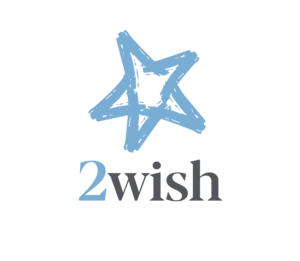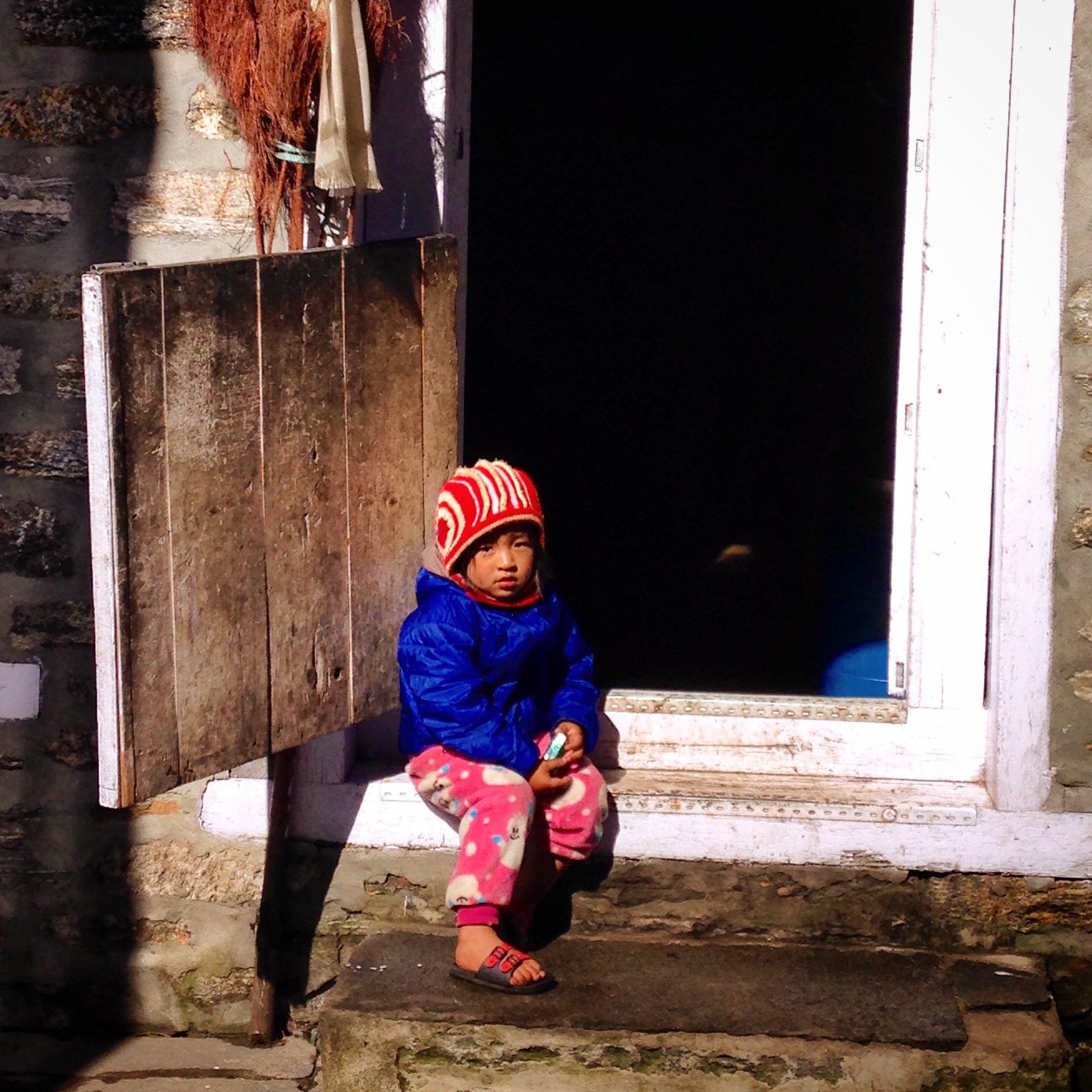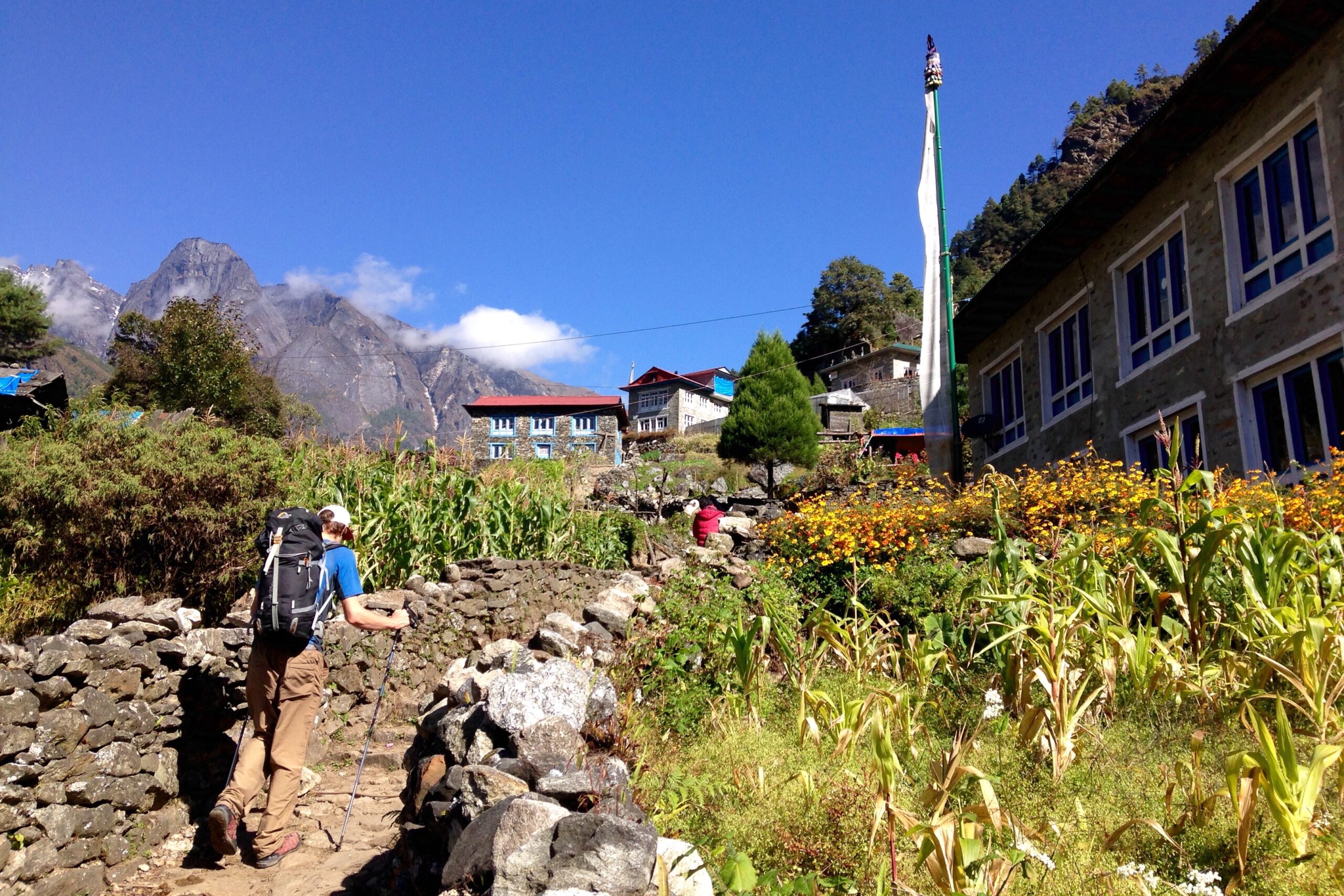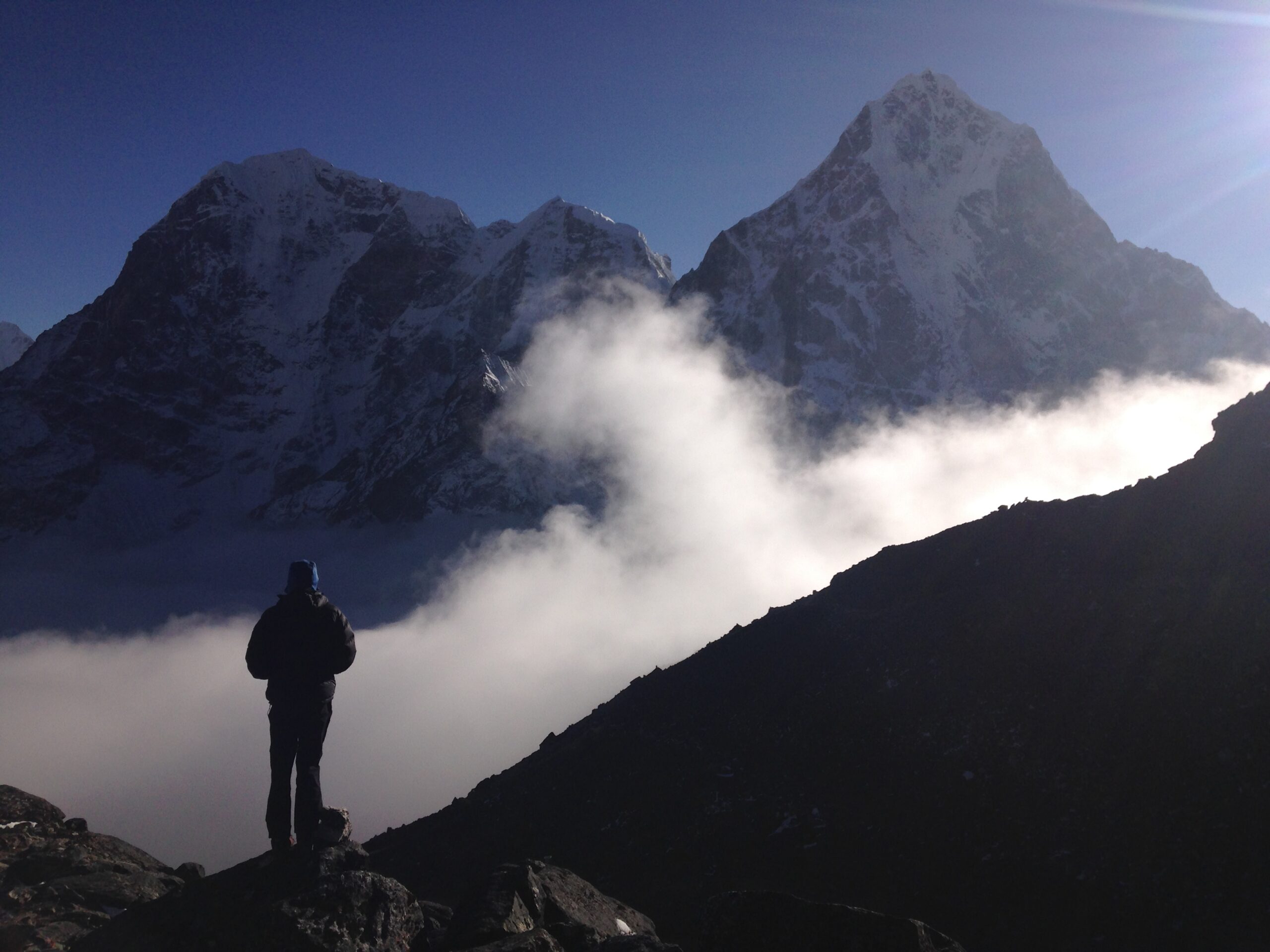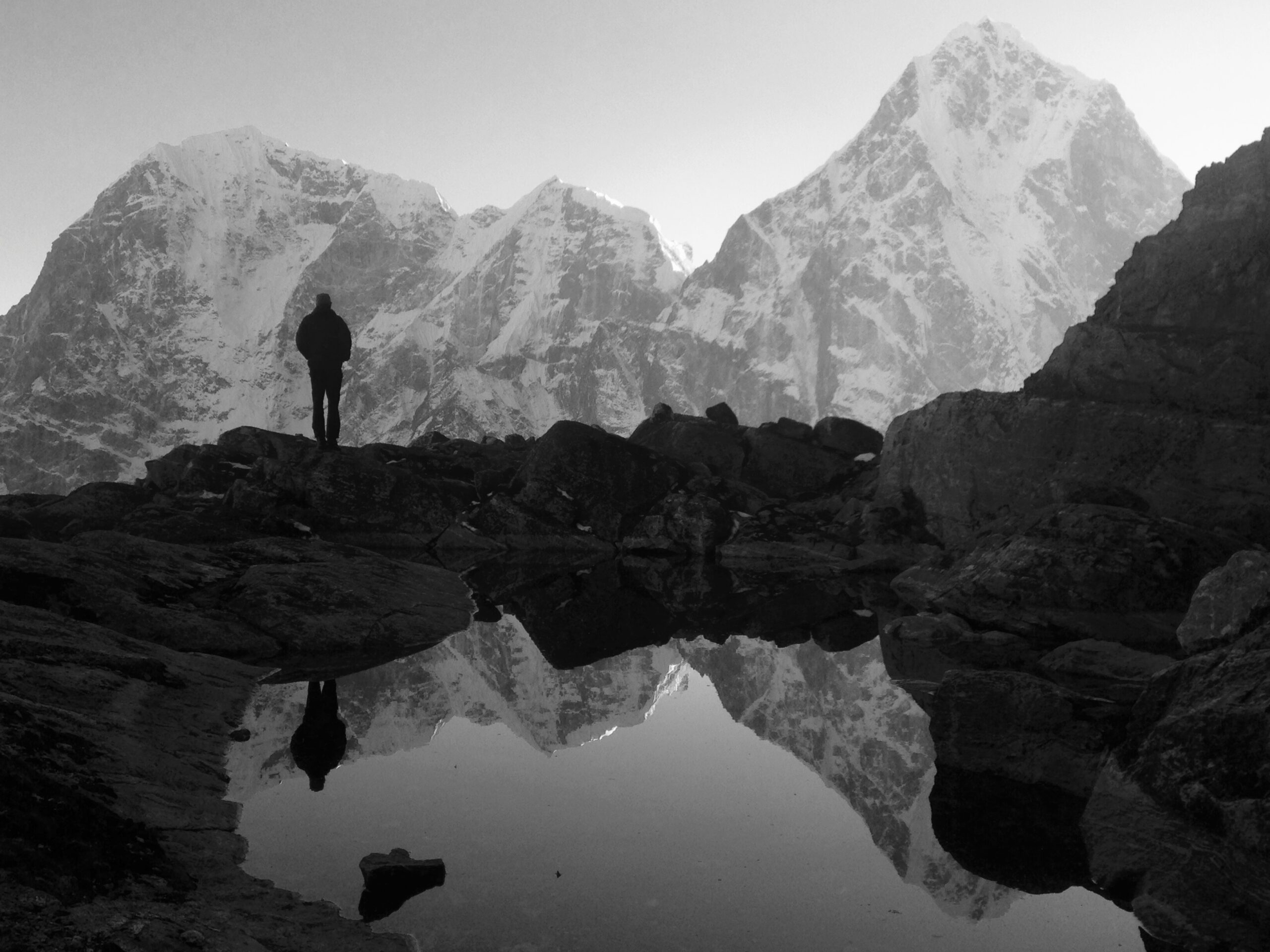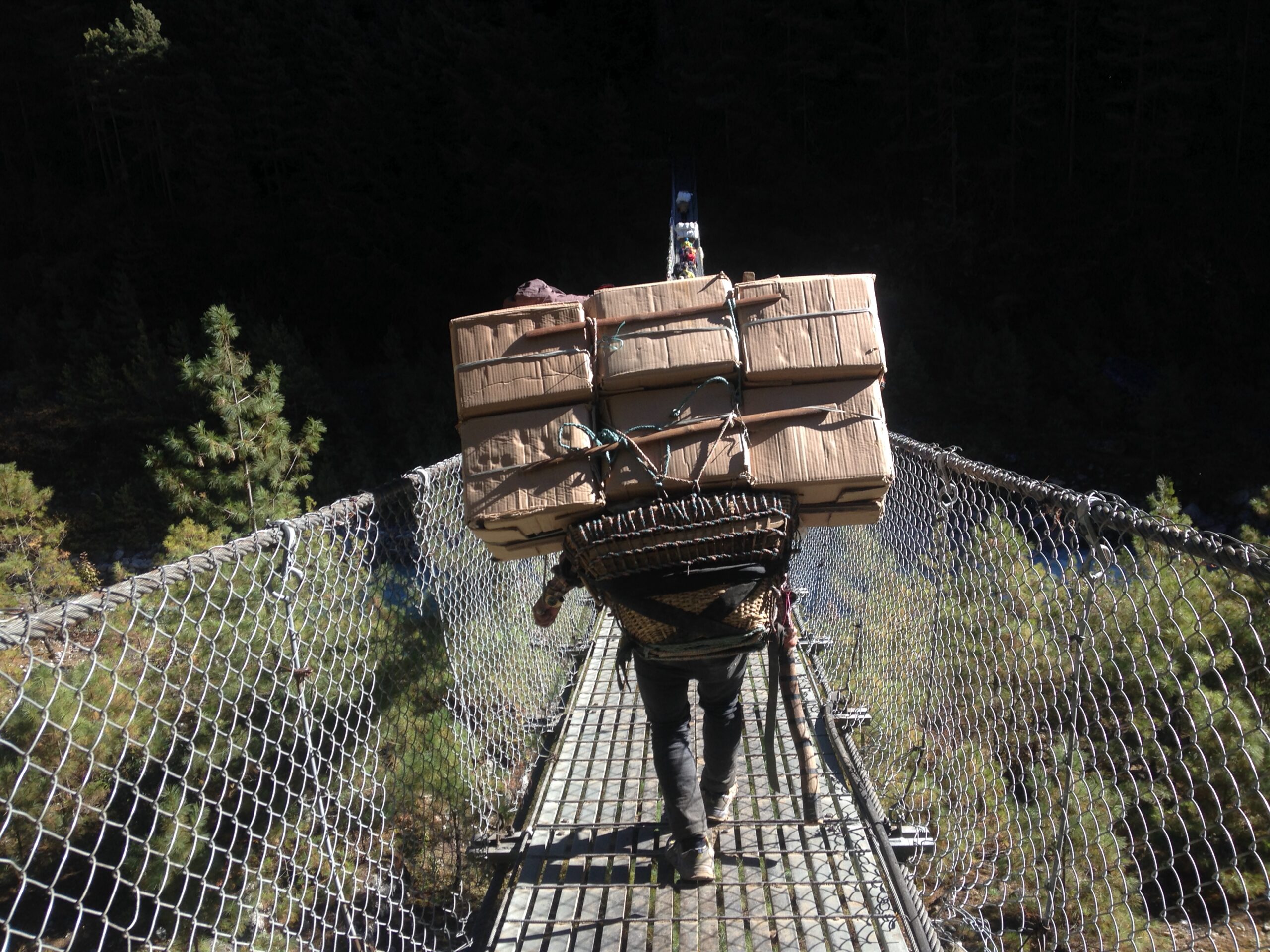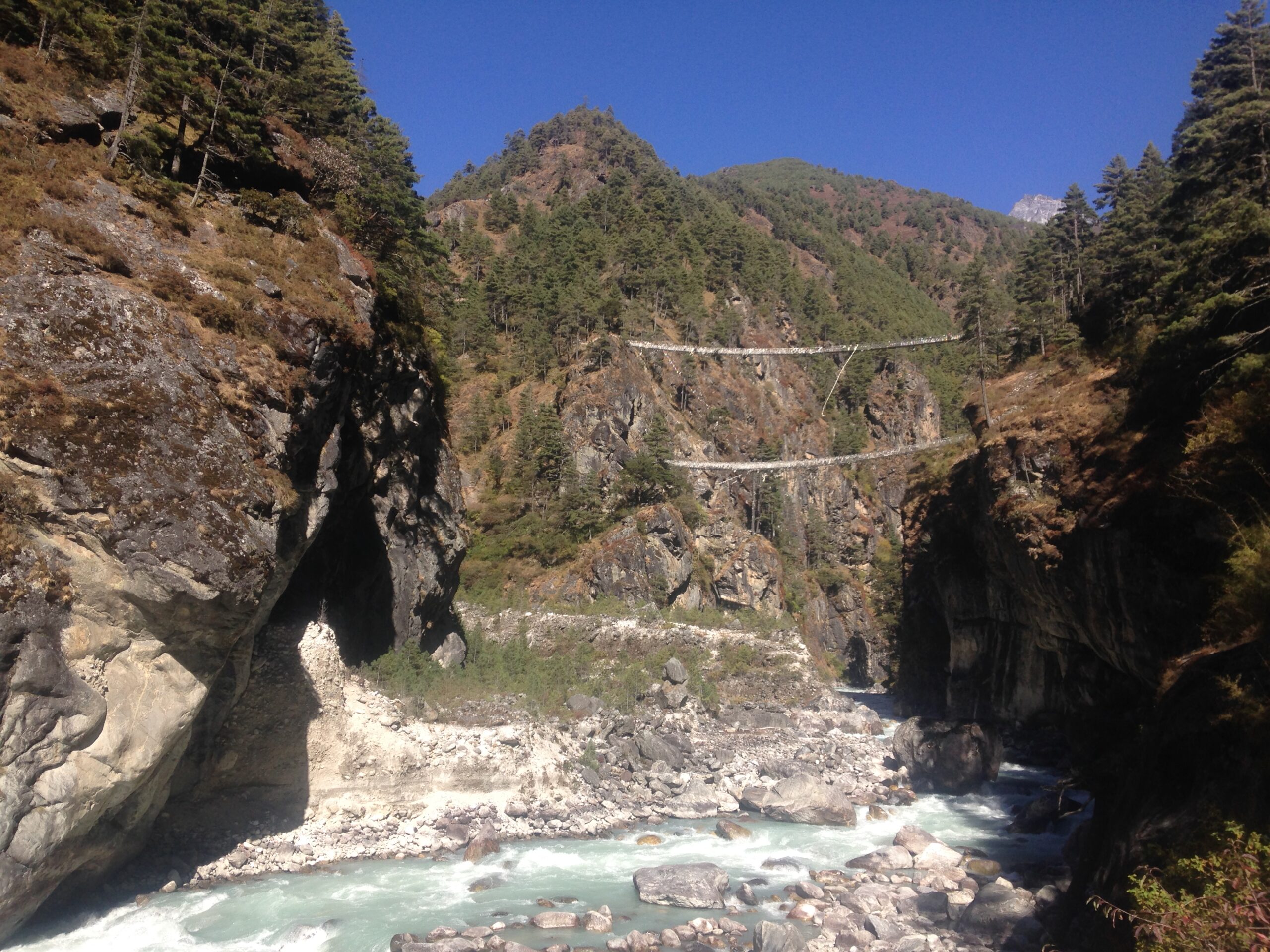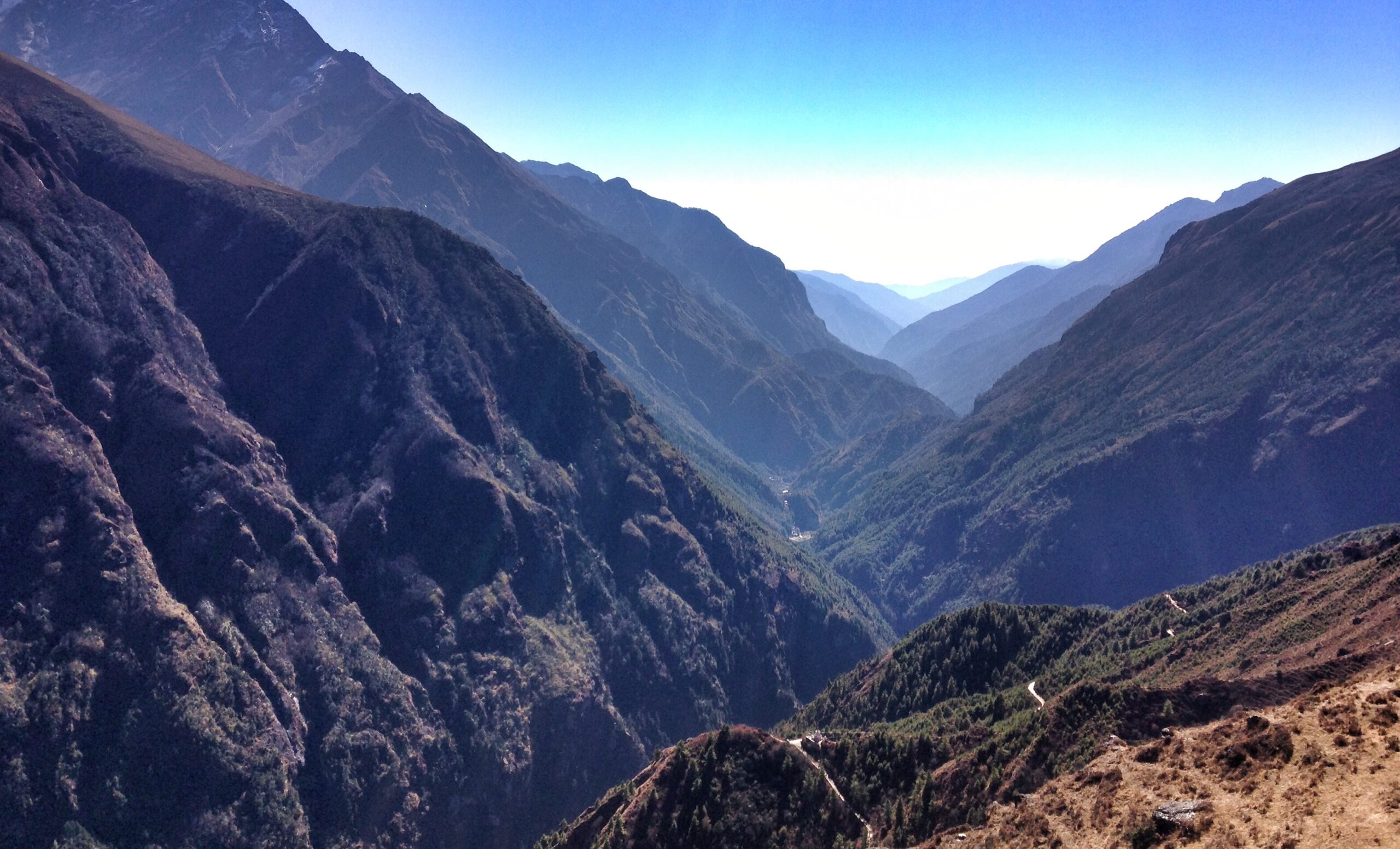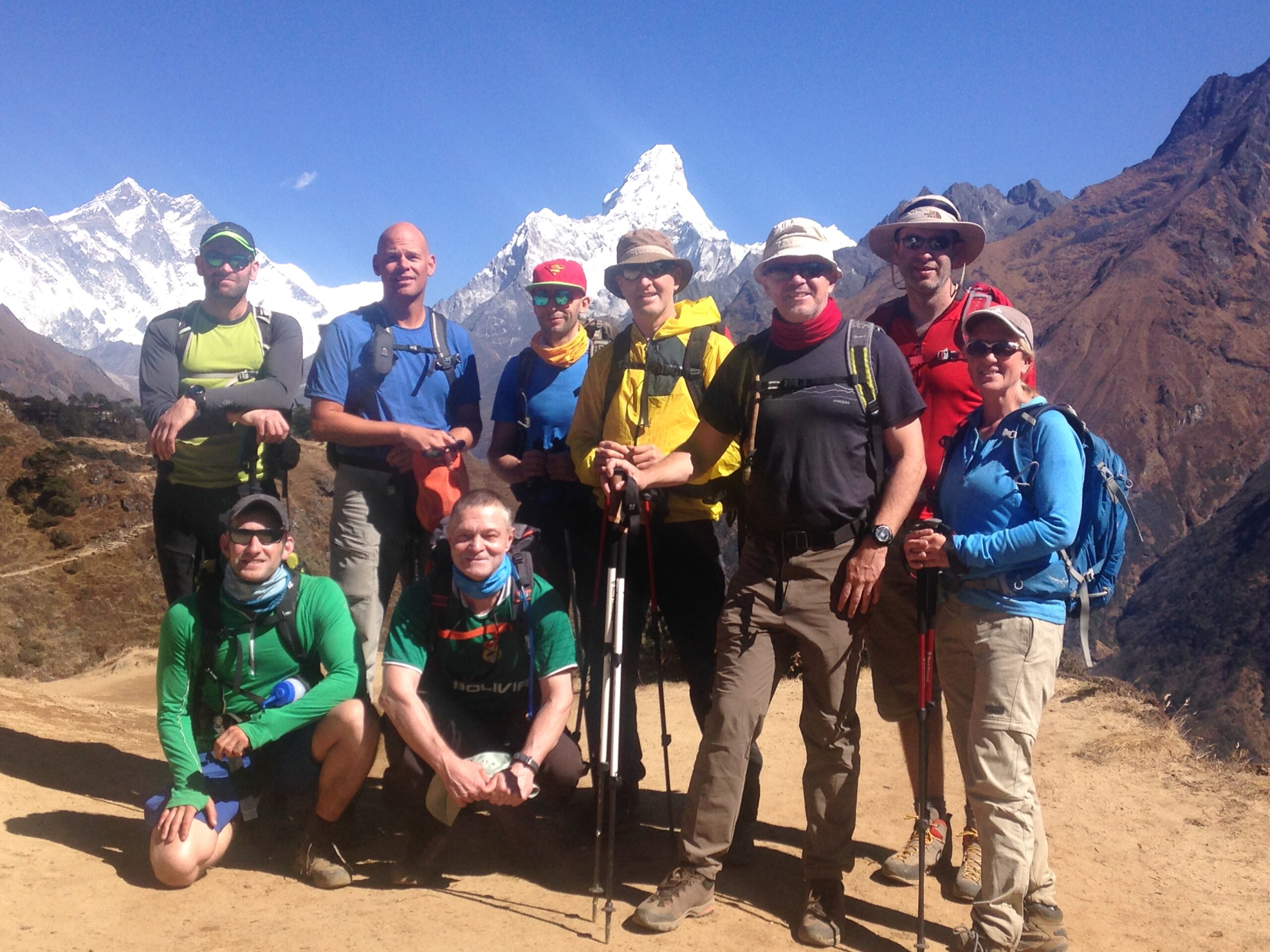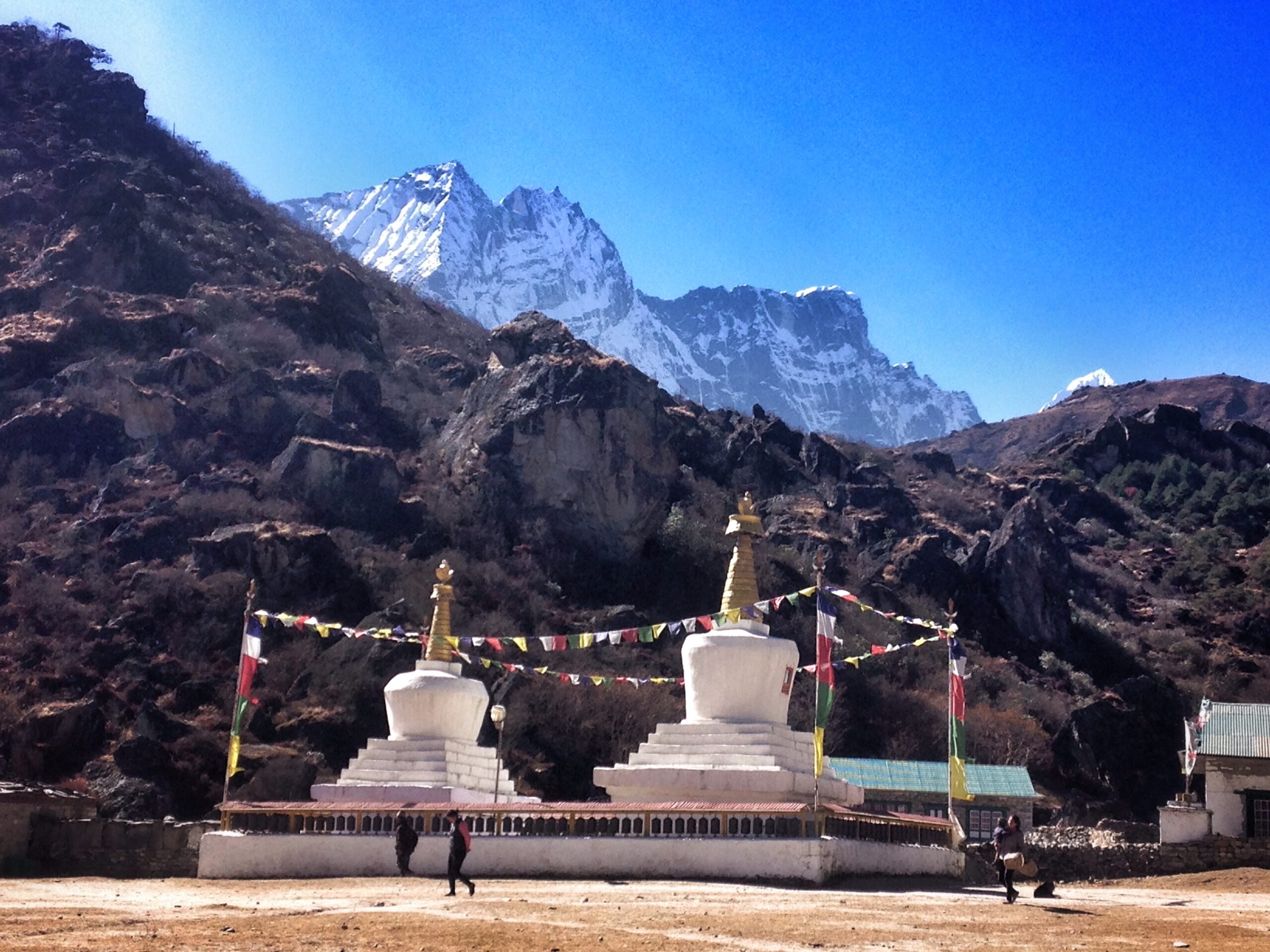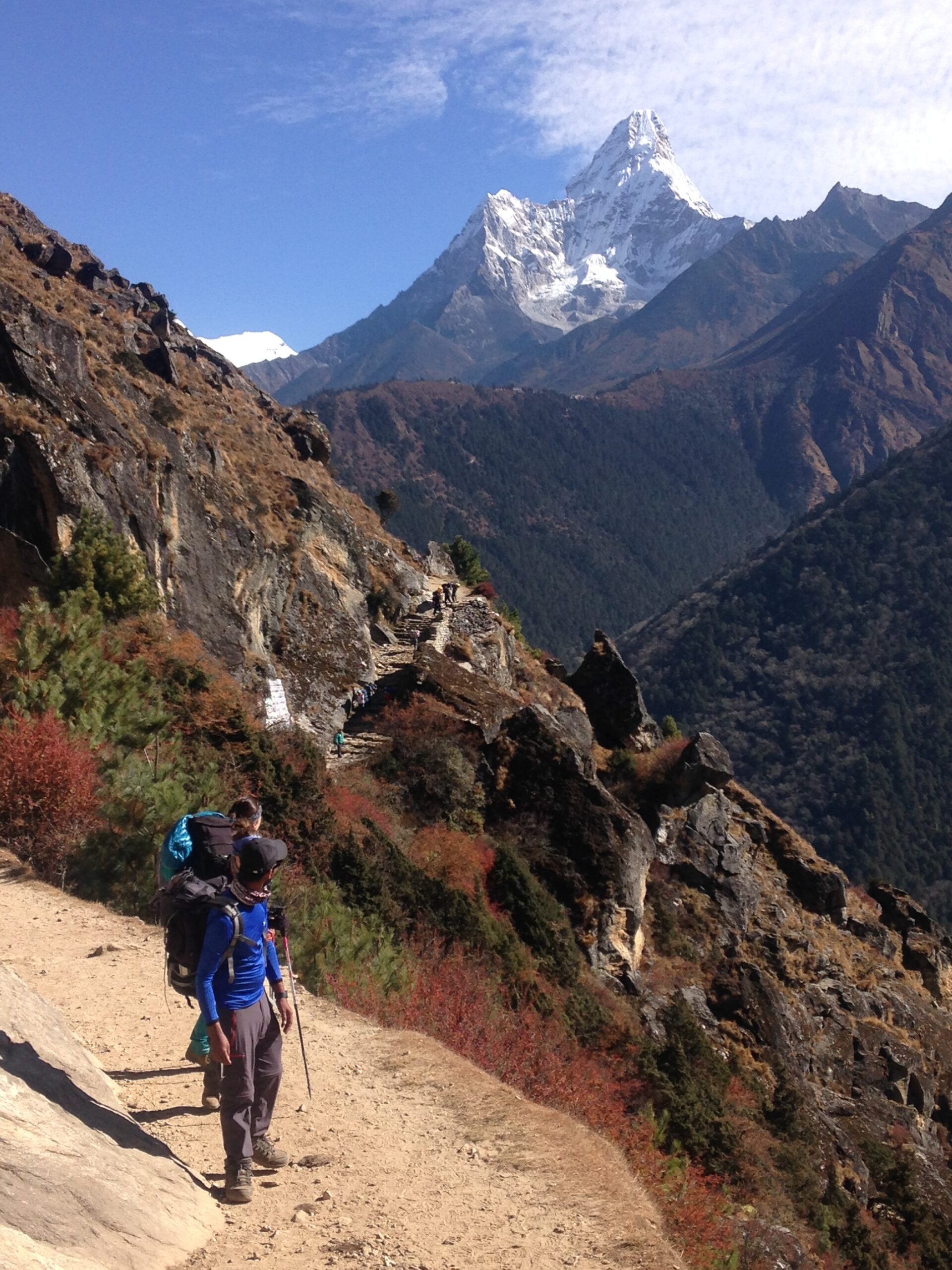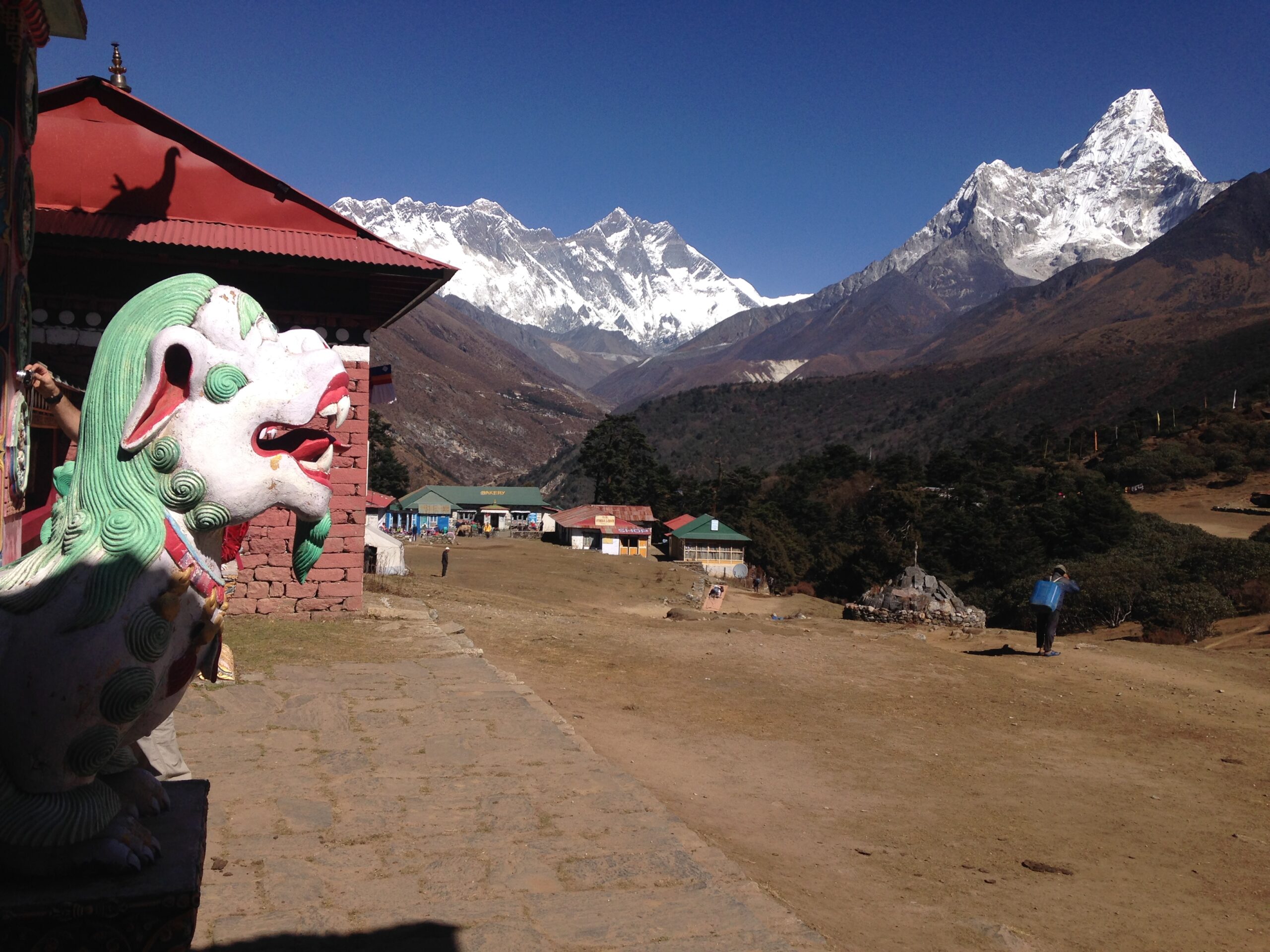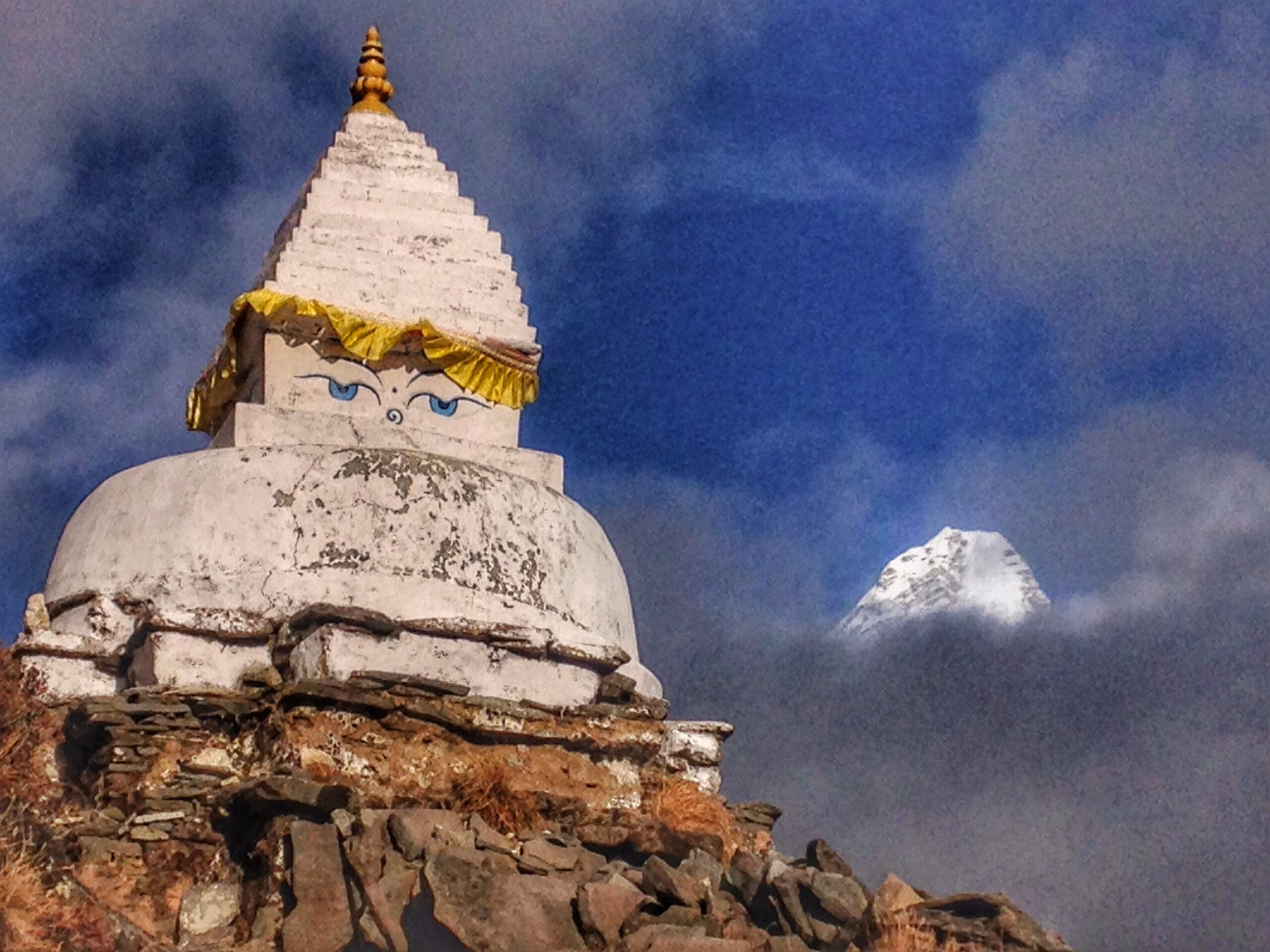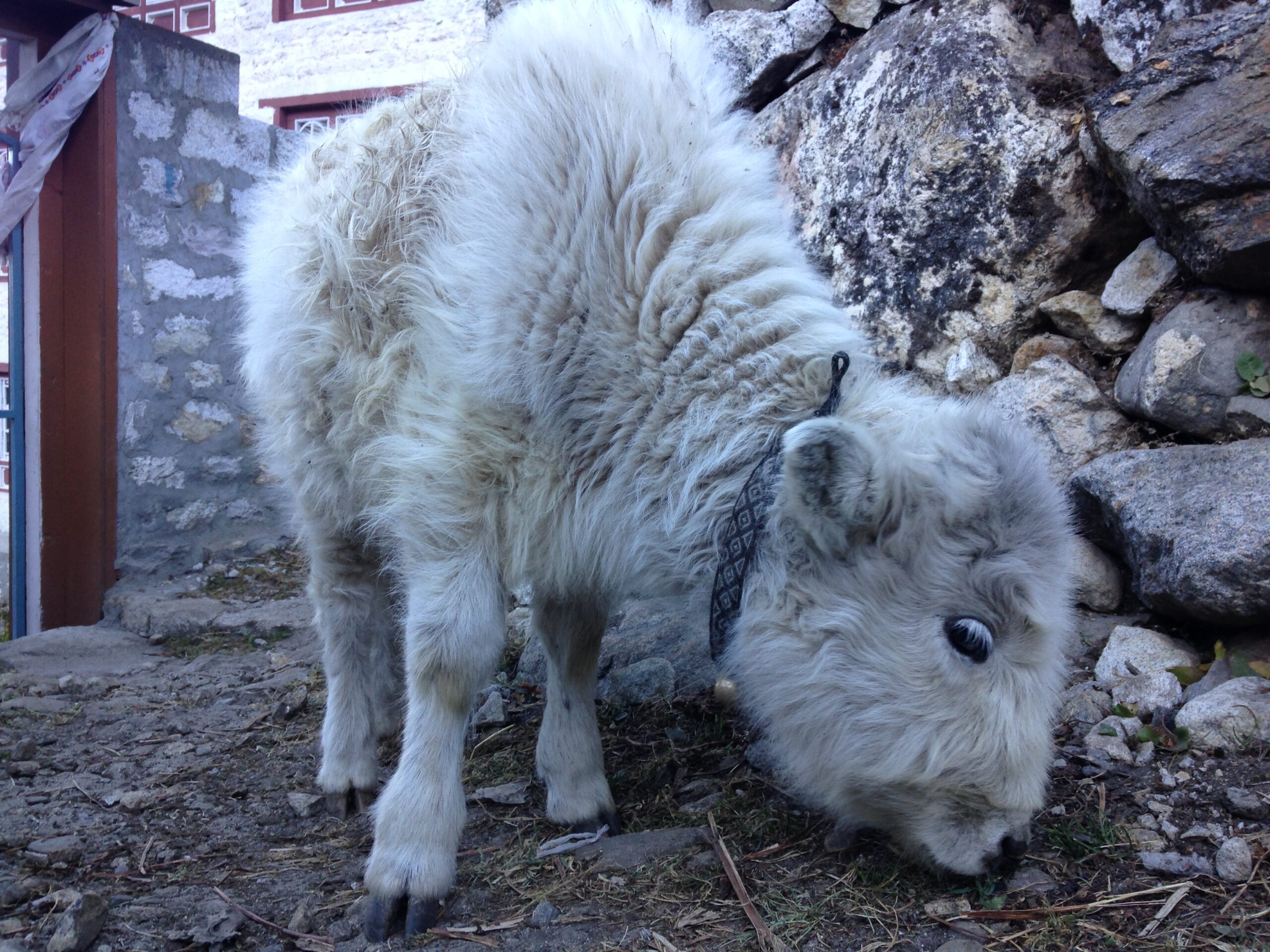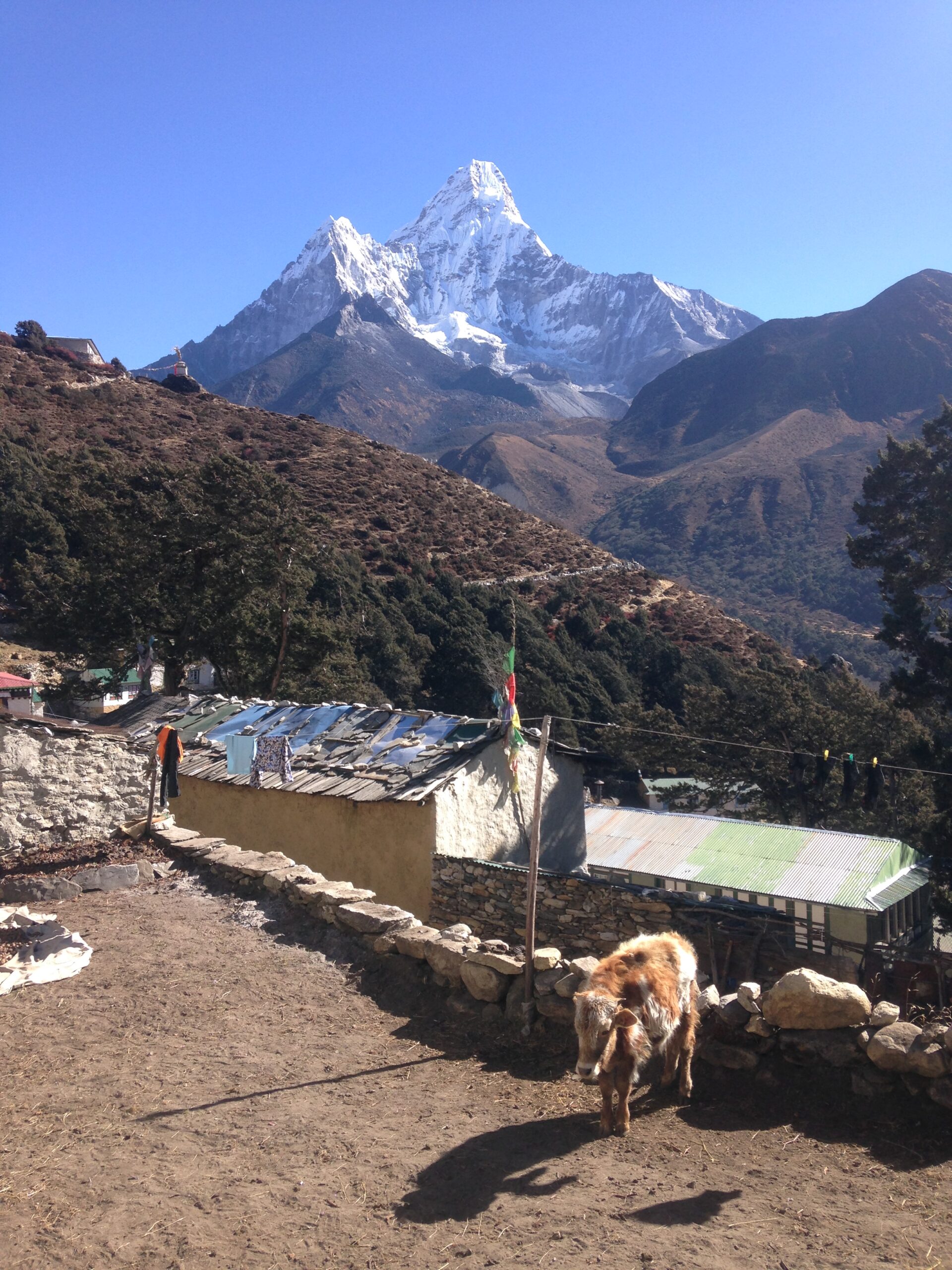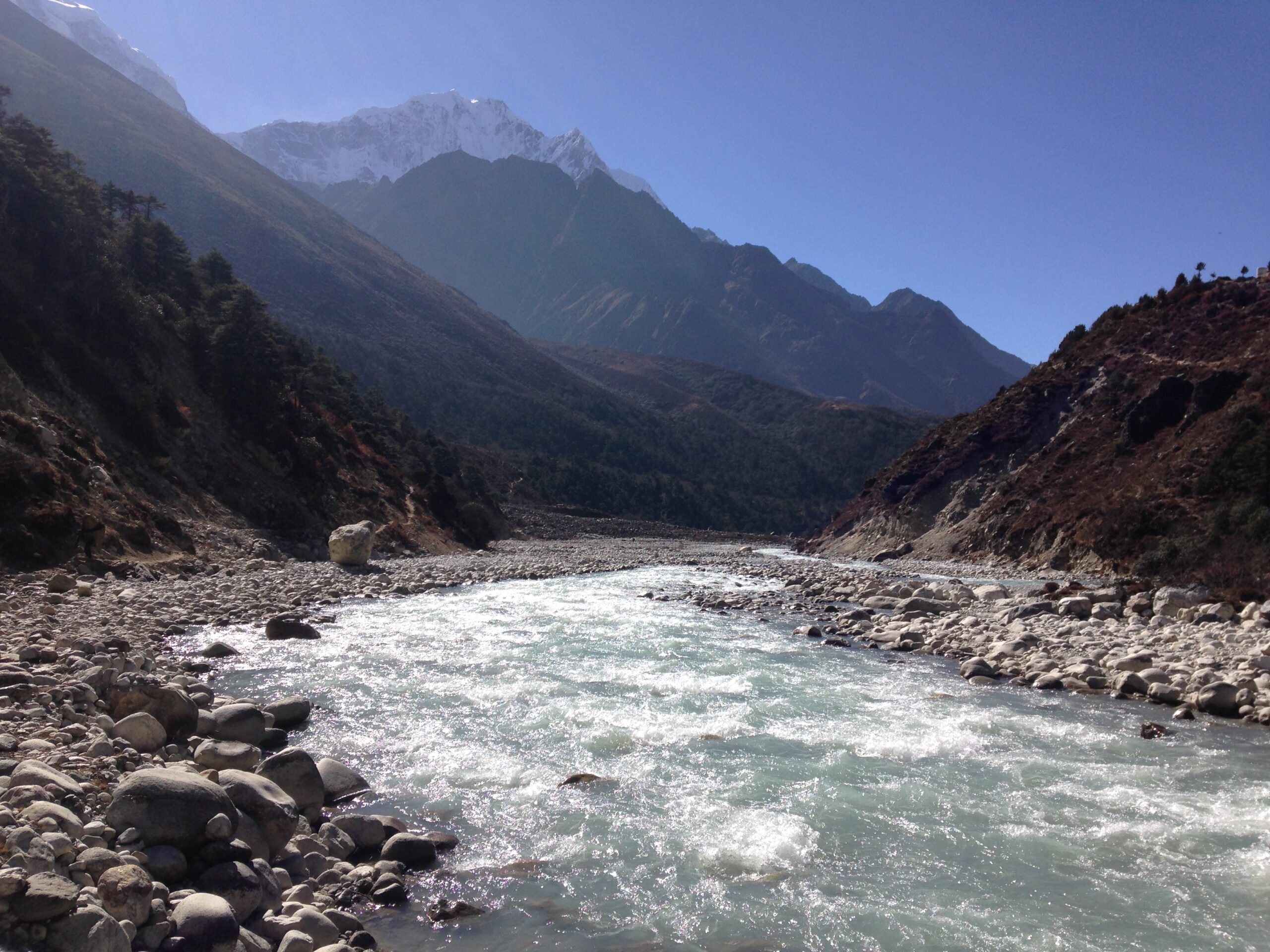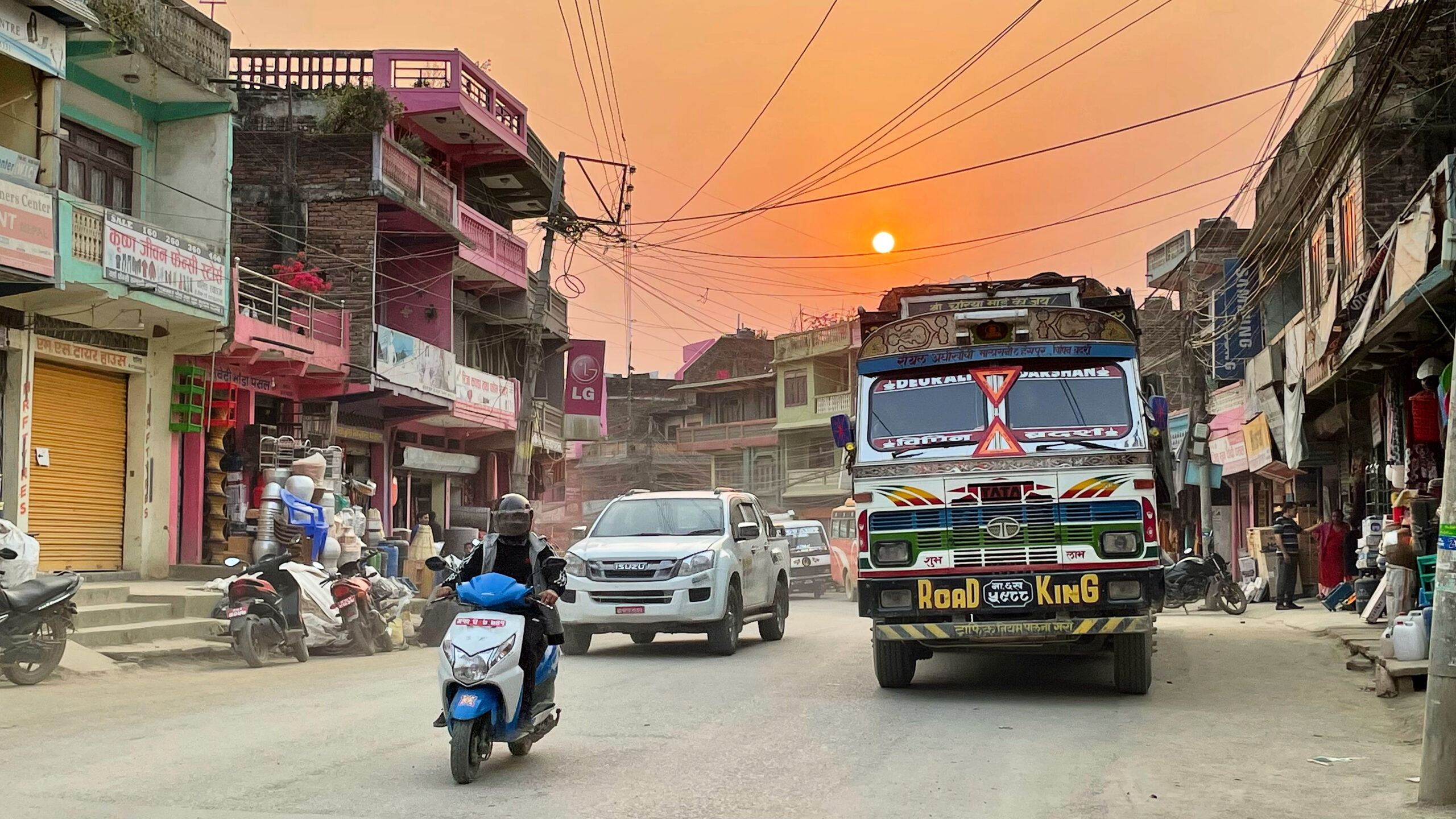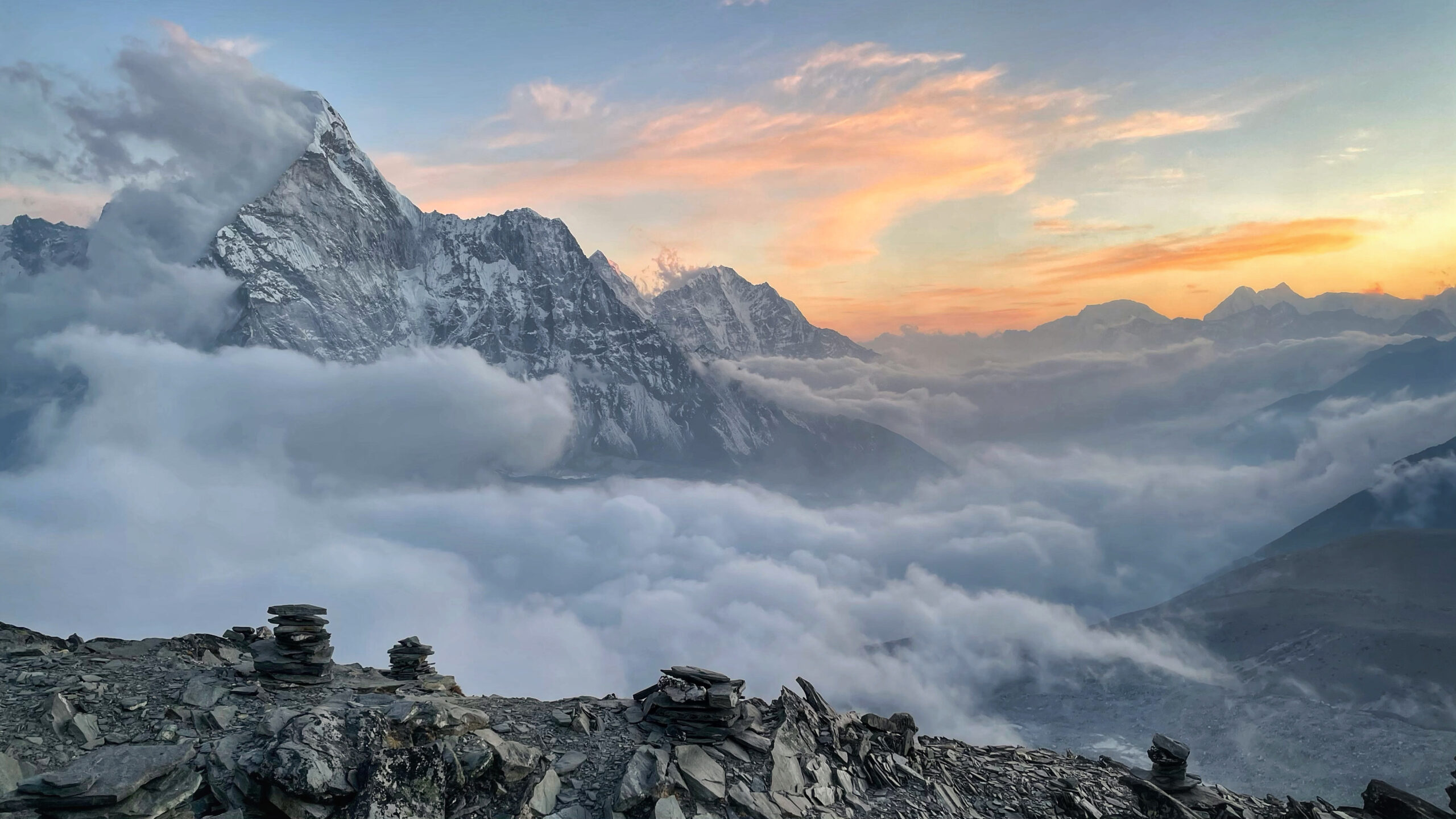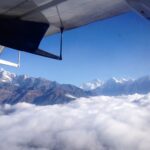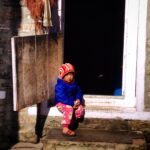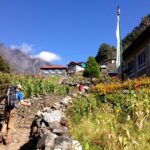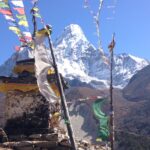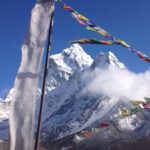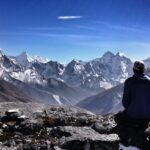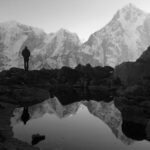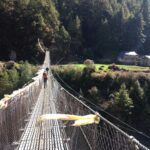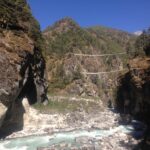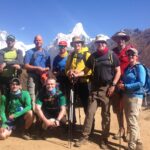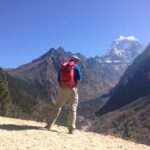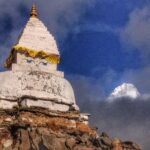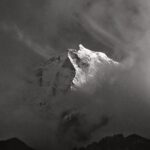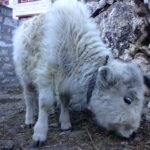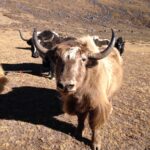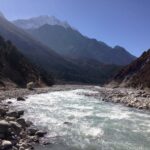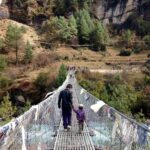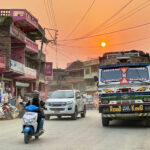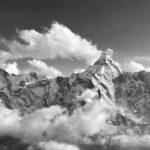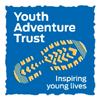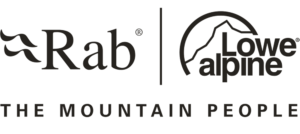Overview
Join the 2wish Everest Basecamp Team and trek amongst the worlds highest mountains – a once in a life time journey to the highest mountain in the world!
Trekking to Everest Basecamp is a truly special experience. During our 11 day trekking route we’ll gradually gain altitude, acclimatise to our new surroundings and enjoy incredible views of the snowcapped giants that surround us. With unprecedented support from Mountain Expeditions and our local team, excellent logistics and plenty of jaw dropping views, your Everest Basecamp Trek is an experience you’ll never forget!
Organised and lead by Jon Gupta
Mountain Expeditions are expedition specialists. We love organising and delivering expeditions all around the world and do so with a friendly and supportive approach. We understand that joining any of our expeditions is a big deal, so we try and make sure everything is perfect from start to finish.
Jon has organised and guided on over 100+ high-altitude expeditions including Everest and K2 and 37 times on Kili(!) – to read more please go here.
Pledge to raise £1,500+ for 2wish
2wish is a registered charity (No 1168140).
To join the Everest Basecamp Trek you must pledge to raise a minimum of £1,500. If you have any question about this please contact Bev Slocombe at bev@2wish.org.uk
The team at 2wish have lots of fundraising ideas and tips for you, so please don’t worry about the target – with proper planning of a few events as a team it is more than achievable, and most participants raise over £1,500.
Local Mountain Guides & extra summit guides
With all our expeditions we partner with the very best local in-country agencies who share our ethos of delivering outstanding expeditions. We believe that a combined leadership team built of UK Expedition Leaders and highly experienced local guides is the strongest and most successful way to deliver our expeditions. Our guides will be with the team throughout the entire expedition.
Very high success rate
With over 25 expeditions in Nepal we have an impressive success rate. We believe this is because of our attentive approach, higher guide ratios and using experienced High Altitude Expedition Leaders. This combination has proved time and time again to be the safest and most successful approach whilst on the mountain.
18 day itinerary with 11 day trekking route
Our itinerary has been chosen to make this trip the very best we believe it can be. We include a preparation day in Kathmandu which allows time for people to rest after a long flight, to wonder the vibrant streets of Thamel and time for your Expedition Leaders to do a full kit and medical check before a relaxed expedition briefing with a cold Everest beer! It also allows time for the the team to get to know each other a little before we set on our trek together.
Fully supported Tea House trek with porters & trekking guides
The truth behind organising and leading worldwide expeditions is that you need an excellent local in-country agent to work with. Over the years Mountain Expeditions has developed a long standing relationship with our local crew in Kathmandu and the added value of our friendly and efficient local staff never goes unnoticed – we know it makes a big difference to your experience. Our local team are a huge part of your Himalayan experience and it makes all the difference on the trek.
“If ethical travel is what you’re looking for in a company, then look no further than Mountain Expeditions. The guides and porters were so much a part of the team that you could tell it was like a big happy family” – Marcus Samperi
Perfect first big trek
There are many reasons people choose to climb big mountains and many reasons why you might choose to trek to Everest Basecamp. What we can tell you is that choosing this trek offers you a realistic opportunity to enjoy one of the best journeys in the world without any prior altitude experience. Please refer to the Suitability tab for more details.
Accommodation: Lodge & tents
Many of our expeditions start and finish in a bustling city in a really nice hotel or lodge. Maybe it’s first and last impressions that count or perhaps we just enjoy having nice accommodation when starting and finishing a trip, but it’s what we do! FYI – We can safely leave things out our hotel in Kathmandu whilst we are on the trek. Refer to the FAQs tab for more details.
Trip Suitability
Everest Basecamp is an amazing journey and, although it is a tough trek it does not require technical mountaineering experience, however a good level of physical fitness is necessary. The Everest Basecamp trek is a fantastic route but it is quite strenuous in parts. To maximise your chance of reaching the summit, we recommend:
- You have a clean bill of health
- You have a good level of fitness (more on this below)
- You have experience walking up hill in a mountainous environment for several hours at a time
In preparation for any mountain expedition, we offer Expedition Specific Training courses in both summer and winter. This is a great chance for you to spend time in the UK mountains with an experienced Expedition Leader and learn some new skills, getting better prepared for you next big expedition objective. If you have booked on to an expedition with us already, then we offer a 10% discount on these courses.
Training for Everest Basecamp
The best training possible is getting out in the mountains themselves. Previous experience in the hills and mountains is hugely beneficial, but climbing stairs and long runs also count!
One of the fastest ascents of Everest was made by a London businessman who trained 1 hour a day for 9 months climbing the stairs of a 24 storey building with a loaded rucksack, so think creatively: Covent Garden Tube Station has 193 steps; Box Hill is just a 50 minute train journey from Central London. Walking, cycling, Cross-Fit – in fact any fitness training will be of benefit to you. Focus on cardiovascular fitness and lower body strength. Long walks and runs are ideal training.
Essentially you will need to be comfortable trekking with a small rucksack for several hours at a time in hilly terrain…for 11 days! If you are unsure of whether you fall into this category, please contact us and we can have a chat about it.
A good indication of both physical and mental fitness is being able to achieve 10km in 1 hour
Itinerary
Please note that the itinerary below is intended as a guideline only. Although every effort will be made to adhere to it, changes may be forced on it by weather conditions, transport failure or other unforeseen events. Please be prepared to be flexible if necessary.
We are in the process of producing a full itinerary for you with all the details, so please check back soon for a downloadable PDF!
| Day 1 |
Depart UK |
| Day 2 |
Arrive Kathmandu |
| Day 3 |
Depart afternoon to Mulkot |
| Day 4 |
Mulkot to Ramechap to Lukla to Phakding |
| Day 5 |
Namche Bazaar |
| Day 6 |
Kyangjuma via Khumjung |
| Day 7 |
Pangboche |
| Day 8 |
Dingboche |
| Day 9 |
Dingboche |
| Day 10 |
Lobuche |
| Day 11 |
Gorak Shep hike Kala Pattar (5,550m) |
| Day 12 |
Everest Base Camp (5,346m) to Pheriche |
| Day 13 |
Namche |
| Day 14 |
Lukla |
| Day 15 |
Extra/Spare day for bad weather |
| Day 16 |
Fly to Ramchep and drive to Kathmandu |
| Day 17 |
Kathmandu – Party! |
| Day 18 |
Depart KTM / Fly home |
Map
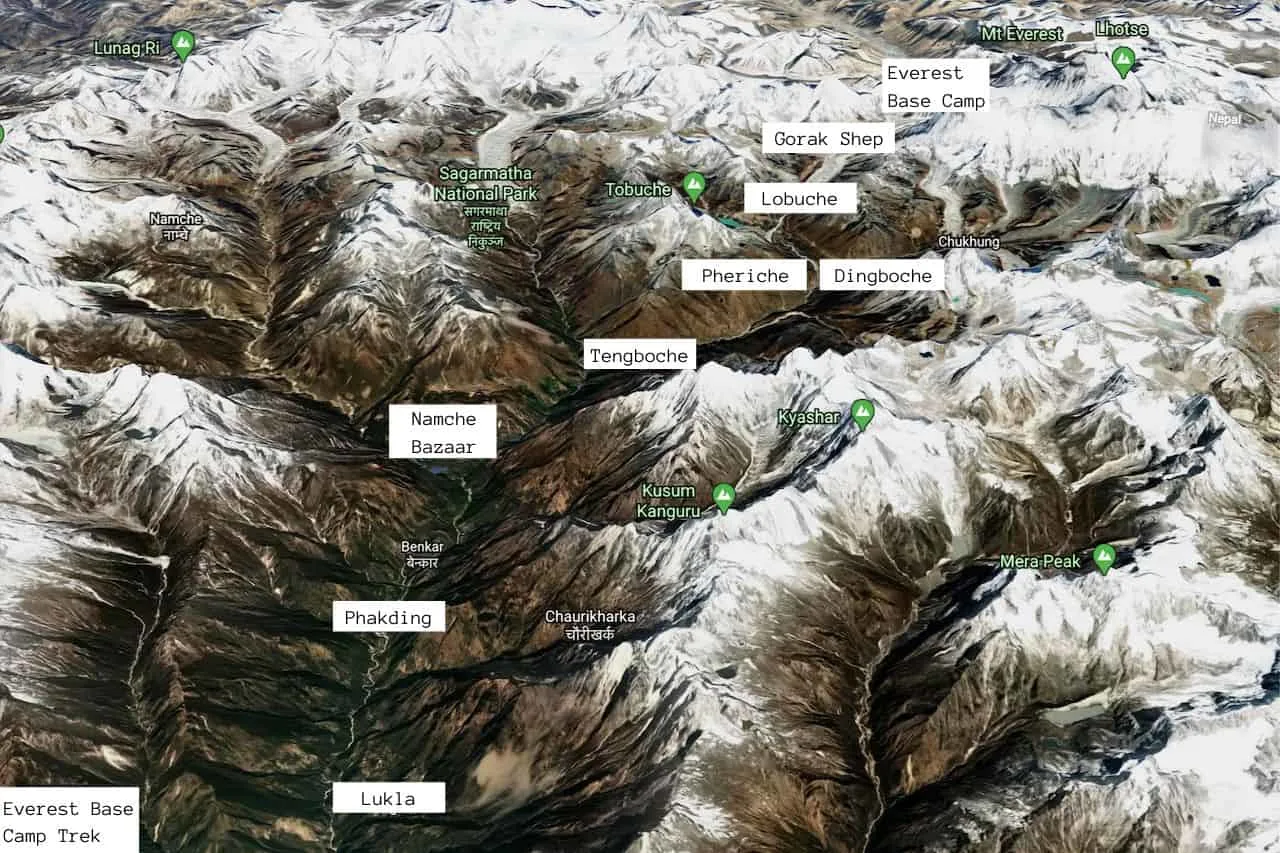
Included
When you book your place on the Everest Basecamp Trek, we want you to know exactly how much the trip is going to cost you, with absolutely no hidden extras or last-minute costs. Our fully inclusive land-only price includes almost everything from the minute you land in Kathmandu until the time when we drop you back – there are no hidden extras!
The following are included in the price of £2,495:
- UK Expedition Leader Jon Gupta (who has extensive high altitude experience)
- Local Trekking Guides, Assistant Guides and Porters
- All in-country travel/transfers/flights
- All in-country meals (except a few lunches in Kathmandu)
- All accommodation during the trek in Tea Houses
- Three nights accommodation in Kathmandu (1 night before, 2 after)
- All National Park fees, TIMs Card and Entry Permits
- Emergency safety equipment
- 24/7 access to Mountain Expeditions and our Medical Advisors
You should also refer to the Not Included section.
Not Included
The following are NOT included in our price:
- International flights to Kathmandu
- Nepal visa, $50 USD*
- Travel insurance
- Tips $140 USD (these are compulsory)
- Personal spending money
- Drinks from the bar(s)
- Lunch during Kathmandu days
- Pre-trip inoculations
- Personal equipment & kit
- Any additional costs associated with leaving the expedition early
* VISA – We recommend that you get your visa before arrival. You can easily apply for your E-Visa here. It is however possible to get your visa on arrival too should you wish too. If you do this you will need $50 USD in cash and a pen.
If you require any advice or help with any of the following then please head to our Everest Basecamp FAQ tab as well as heading to our general expedition FAQs section, or simply Contact Us and we can help.
Difficulty Level
All of our UK Courses & Worldwide Expeditions come with a suggested difficulty level to help you choose the correct one. For a full explanation of the Scottish Winter, Alpine and UK Rock Climbing grading systems, this blog explains them all – Grades Explained
Grading for UK Courses
With all our UK courses please refer to the Trip Suitability section for more specific details on course expectation and technical and physical levels required.
C1 – Intro Course: open to any level and ability
C2 – Intermediate Courses: previous experience of scrambling/rock climbing or winter mountaineering
C3 – Advanced Courses: previous technical summer or winter climbing experience
Grading for Worldwide Expeditions
With all our Worldwide Expeditions you should refer to the Trip Suitability section for more specific details on the expedition expectation and technical and physical levels required. If in any doubt please don’t hesitate to contact us.
Physical
A. Good basic fitness, as for UK hill walking and mountaineering. Average rucksack weight: 6-8 kg
B. Good cardio-vascular fitness which for most people requires some training, by running, hiking and perhaps some gym work. Average rucksack weight: 8-12 kg.
C. High level of fitness coupled with physical toughness and the ability to carry a heavy rucksack for long periods. Average rucksack weight: 12-18 kg.
D. As for C, but tougher. Climbs of this grade are exceptionally strenuous and some weight loss is inevitable. Train hard and arrive fit. Welcome to ask for advice if training specifically.
E. Hard physical effort at extreme altitude which requires thorough preparation based on your experience of previous trips. Comments for ‘D’ also apply. May cause long-term fatigue after the trip.
Technical
1. Low angle snow or straightforward scrambling on rocks. Ropes are not usually required. Previous climbing experience is not essential.
2. Ropes are used principally for glacier travel and low angle snow or ice slopes. Ice axe and crampon experience necessary.
3. Short, steep sections of snow or ice up to about 50 degrees. Previous snow and ice climbing experience of Scottish III/Alpine PD is essential.
4. Long, steep snow and ice slopes with short steps of very steep ice or low grade rock climbing. Good all-round climbing ability required to Scottish III/Alpine AD.
5. Very steep ice (Scottish III/IV or harder) or rock (Hard Severe or harder). Suitable for competent mountaineers who have climbed consistently at these standards.
In-country Safety
Government Advice
We support the British Foreign & Commonwealth Office (FCO) ‘Know Before You Go’ campaign and recommend that you have a good read of the FCO Travel Advice for Nepal.
24/7 Expedition Medical Advisors
We work very closely with two specialist Expedition Medical Advisors (EMA’s). If you have any concerns about how your health conditions may be affected whilst in the mountains with us, you are welcome to talk with our EMA’s prior to your trip – all you need to do is let us know and we’ll put you in touch. Whilst on expedition our EMA’s are contactable 24/7 to provide our leaders with advice or assistance during any arising medical situation.
Emergency Operation Procedures
We work very hard to ensure we have a clear plan for all eventualities that may arise during the expedition. Liaising with local agencies including mountain rescue means we adhere to local regulations, have a clear evacuation process and ensure all the ‘what ifs’ are covered.
Risk Assessments & British Standards
Whilst expeditions to big mountains have inherent objective risks, we do our very best to mitigate these risks as much as possible. Careful planning and thorough consideration of all aspects of the trip means that there are very few surprises. We take advice and guidance from the British Standards BS8848 publication as well as from our experienced leaders and local agents.
FAQs
Can I leave some things at the Lodge/Hotel?
Yes, this is no problem at all. Personal items, travel clothes etc. can all be left at the lodge/hotel ready for our return from the mountain.
Money, passports etc. can also be left safely in the lodge/hotel safe but this is done so at your own risk.
What is the Payment structure for the trip?
To confirm/book your place you will be required to pay a 20% (£499) deposit.
The balance is then split into two payments (you will receive automatic reminders):
1) 50% of the balance (£998) is due at 12 weeks prior
2) 50% of the balance (£998) is due at 6 weeks prior
However, once you have paid the trip deposit and you have 'Your Account' on the website, you are welcome to go in and pay any amount and anytime that suits you.
I’m worried about slowing down the team?
This is a really common concern and one we have thought about too. You'll be pleased to know that you don't need to worry about this at all as we easily can accommodated all speeds on the trek thanks to our amazing local crew of guides.
We want you to be happy at your pace!
Tips - how much and why?
Our local team works super hard during the trek on the mountain to ensure everything runs smoothly. It has become the custom to tip the crew as a sign of gratitude at the end of the trek.
Your leader will manage the tipping at the end. It is normal for the leader to collect in all the tips during the preparation/build up day and keep them safe for the tipping ceremony at the end.
We ask that you contribute US$140 to the pot. Small denominations are much appreciated.
What is the toilet situation?
The Tea Houses on the trek all have normal toilets. On the trail you can nip behind a tree or a rock if required.
We promote a clean mountain ethos so if you're not using a toilet you'll be expected to take any toilet paper away with you.
I am vegetarian or have dietary requirements?
All you need to do is let us know your specific requirements and we will pass them on to the Tea Houses. They are very used to dealing with dietary requirements and whatever yours is, it won't be a problem at all.
What do I eat on the trek?
The food is absolutely superb and is all freshly prepared each meal. Generally we choose from a simple menu at the Tea Houses. Any special dietary requirements can easily be catered for – just let us know.
What do I have to carry on a typical day?
You are expected to carry a day pack containing items needed for that day. Each day your leader will talk to you about what to carry.
It is to your benefit to carry the minimum, enjoying the experience to the full. All items not carried by you will be carried by a porter.
What is a duffle bag? Can I take a suit case?
A duffle bag is a large holdall of around 80-100L which has a big opening at the top making accessing your belongings very easy. They are not expensive and are tough wearing making them a long standing favourite for expeditions like this.
You can bring any type of large holdall you wish, but hard suitcases with wheels are less than ideal. The porters will not be carrying your main bag in a typical rucksack manner.
If you have any question about this then please ask.
Should I take Diamox?
Diamox is a drug that can aid acclimatisation. On treks such as Everest Basecamp we ascend at a normal rate and it is therefore not necessarily recommended.
However you can if you would like too. If you are considering taking Diamox our advice is to do your research first. You should understand what it is and how it works and then visit your GP or specialist travel clinic. Websites such as NHS Fit For Travel and MedEx are great sources of knowledge and are very informative.
What happens if I get ill and need to go down?
If a team member needs to descend this can be arranged quickly and easily. There are a number of options depending on where we are on the mountain (walk or helicopter) and with 24/7 contact with our agent in Kathmandu you are in safe hands on and off the mountain.
We have helped evacuated a small number of members over the year; quickly, efficiently and safely.
Do I need any money on the 11 day trek?
Yes. At the Tea Lodges and on the trek there will be the opportunity to buy items like Coke or Pringles should you wish too. There will also be Bakery's along the trail.
Many of the lodges also have Wifi and most charge for this too.
We recommend $10-20 per day depending on how many cakes, or how much wifi you may wish to buy.
Please note - it is better to have local currency (Rupees) for everything whilst in Nepal. Please see FAQ below on local currency.
Currency - local money infomation
Local currency is the Nepali Rupee (~150 = £1. It is usually not possible to buy these outside of Nepal.
We advise you to change US Dollars or UK Sterling into Rupees upon arrival in Kathmandu. There are plenty of currency exchange booths all over Thamel/Kathmandu and it's very easy to change money here.
US Dollars in small denominations are best for tips. ATM's are also widely available and accept most cards as per normal overseas transactions there will be charge.
Spending money - How much do I need?
The expedition is fully inclusive except for only a few items specified in the Not Included tab.
You will need some money to cover your bar bills in Kathmandu and other sundry expenses. Usually around $100-200 is enough, but it depends if you want to buy souvenirs and other bits and pieces.
Are airport pick-ups included?
Yes! You will be met at the airport and transferred to our hotel in Kathmandu which takes between 20 mins - 1 hour depending on traffic!
It doesn't matter what time you arrive, our local transfer driver will be waiting for you with a Mountain Expeditions sign.
Airport transfers at the end of the expedition are also included.
Visa - Do I need one? How do I get it?
You can usually get these on arrival. They cost US$50. To make your life easy please make sure you have US$ cash for this. At the airport you will need to fill out a form on arrival so a pen is very handy too.
You can of course apply for your Visa before you arrive if you prefer. It's quick and easy to do online and generally makes life easier at the airport.
https://uk.nepalembassy.gov.np/visa/
Hire Kit - Can I hire some items?
Yes! Mountain Expeditions has some items available for hire such as down jackets, warm layers, extra warm sleeping bags, trekking poles and warm gloves.
It is also possible to hire/buy many items in Kathmandu too.
We recommend you try to arrive with all of your kit sorted but if you need to hire some items please let us know in advance.
Plugs - What plugs does Nepal use?
Electricity Plugs are UK standard, European 2 pins or sometimes a 3 pin! Most hotels and lodges will have standard UK plug sockets.
A travel adapter can be very useful.
Altitude sickness - I am worried about getting sick.
At Mountain Expeditions we take this very seriously. Our tried and tested policy of gradual acclimatisation and continuous
monitoring by your expedition leaders helps to ensure your wellbeing and offers you the best possible chance of
summit success.
During the main briefing on build-up day Jon will go into more detail about altitude sickness and what to look for.
We encourage you to download this fantastic free booklet on altitude from MedEx.
https://www.medex.org.uk/the-medex-book/

